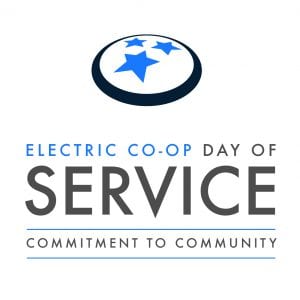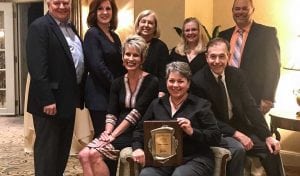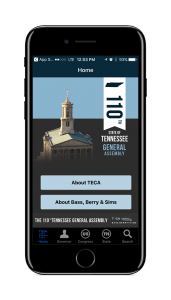State’s electric cooperatives gather in Nashville to explore the impact of co-ops
NASHVILLE – “Build Up” was the theme of the 76th annual meeting of the Tennessee Electric Cooperative Association, held Sunday, Nov. 19, through Tuesday, Nov. 21, in Nashville. More than 350 electric cooperative leaders from across the state attended the event where they explored the impact of co-ops and challenged one another to meet the needs of their communities.
“Co-ops provide safe, reliable and affordable electricity, but our impact goes far beyond energy,” says David Callis, executive vice president and general manager of the Tennessee Electric Cooperative Association. “We recruit jobs and investment; we prepare the next generation of leaders; we give back through charitable donations, taxes and payroll; and we are on the leading edge of a movement that will bring high-speed internet to rural communities. Electric co-ops build up Tennessee – creating opportunities, impacting families and positioning communities to grow and prosper.”
Michael Watson, manager for Duck River Electric Membership Corporation in Shelbyville, was appointed president of the board and Jarrod Brackett, manager of Fort Loudoun Electric Cooperative in Vonore, was appointed vice president. Johnnie Ruth Elrod, director for Meriwether Lewis Electric Cooperative in Centerville, will continue to serve as board secretary.
Elections were also held for three positions on the association’s board of trustees. Mark Derrick, a director for Holston Electric Cooperative in Rogersville; Michael Jordan, a director for Sequachee Valley Electric Cooperative in South Pittsburg; and Kevin Murphy, manager for Southwest Tennessee Electric Membership Corporation in Brownsville, were elected to four-year terms.
“Congratulations to those honored with leadership positions,” says Callis. “Their talents and ideas will be valuable as we continue our mission to serve Tennessee’s electric cooperatives and their members.”
The third annual TECA Top Tenn Communications Awards were presented during the event. Gibson Electric Membership Corporation received an award for Best External Newsletter or Magazine Section; Duck River Electric Membership Corporation, Best Internal Newsletter and Best Website; Sequachee Valley Electric Cooperative, Best Use of Social Media; Fayetteville Public Utilities, Best Video. Appalachian Electric Cooperative, Duck River Electric Membership Corporation, Gibson Electric Membership Corporation and Middle Tennessee Electric Membership Corporation each received Awards of Excellence in the Wild Card category, with Duck River Electric Membership Corporation, Volunteer Energy Cooperative, Sequachee Valley Electric Cooperative and Appalachian Electric Cooperative earning Awards of Merit.
“It is important for electric cooperative consumer-owners to be educated and informed,” says Robin Conover, TECA’s vice president of communications and editor of The Tennessee Magazine. “We honor these winners for telling the electric cooperative story in a professional way across multiple platforms.”
“I’ll leave you with this challenge,” said Callis during remarks to co-op leaders on Monday, Nov. 20. “Think carefully about your co-op and your co-op members. What are their needs? What are their expectations? What opportunities exist for your co-op to take action to improve everyday life for your members. We have an important role to play, and together co-ops can build up Tennessee.”

 [NASHVILLE] – Co-ops across the state today are participating in the first Tennessee Electric Co-op Day of Service. More than 300 co-op employees are scheduled to volunteer 1,200 hours in completing 19 unique service projects in co-op served communities throughout Tennessee.
[NASHVILLE] – Co-ops across the state today are participating in the first Tennessee Electric Co-op Day of Service. More than 300 co-op employees are scheduled to volunteer 1,200 hours in completing 19 unique service projects in co-op served communities throughout Tennessee.
 “We have produced print directories of the General Assembly for more decades, and this is our fifth year to release an app,” says David Callis, executive vice president and general manager of the Tennessee Electric Cooperative Association. “It is important for Tennesseans to be active and involved with their elected officials, and the app is a tool that makes it easy to speak up on issues that are important.”
“We have produced print directories of the General Assembly for more decades, and this is our fifth year to release an app,” says David Callis, executive vice president and general manager of the Tennessee Electric Cooperative Association. “It is important for Tennesseans to be active and involved with their elected officials, and the app is a tool that makes it easy to speak up on issues that are important.”